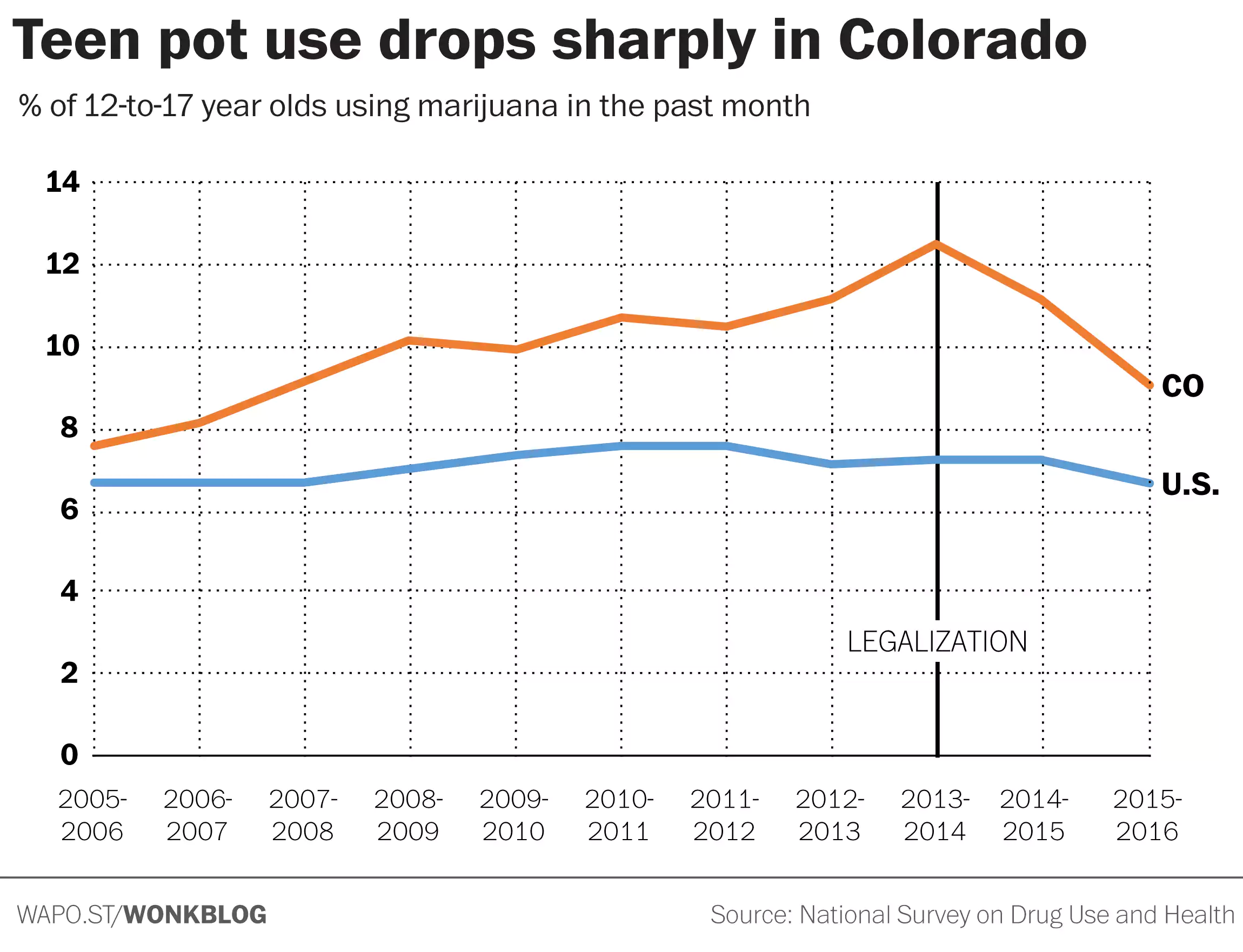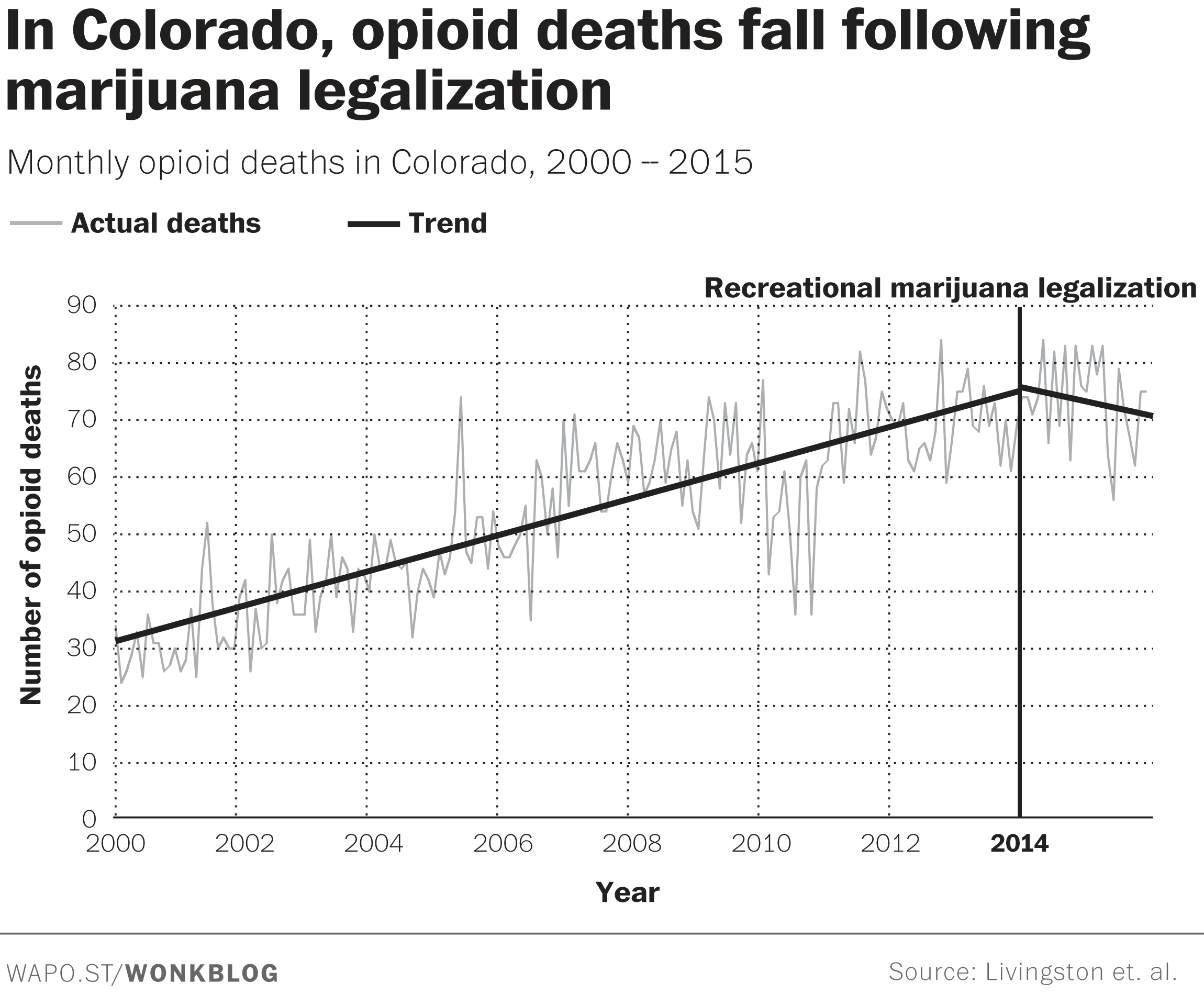Drug Legalization
This is pretty brief. The case for general drug legalization appears fairly strong.
First, there's the obvious philosophical foundation of libertarianism: if people want to do something and it doesn't harm others, they should be allowed to. However, this argument is fairly naive, because it ignores the externalities drug use has on society and ignores the internalities drugs impose on their users.
Fortunately, it doesn't look we have to muck about in weighing pros and cons. When Colorado legalized marijuana, they saw a significant fall in usage relative to the rest of the nation Following marijuana legalization, teen drug use is down in Colorado:

This is obviously odd from a supply-and-demand perspective. The only reasonable explanation I can think of is that a significant number of people turn to alcohol because it is illegal - to "rebel" against "the Man" or something. If true, the natural counter-argument is that legalizing marijuana simply shifts how people rebel - from smoking pot to popping opioids. However, this appears to not be the case, as the legalization of recreational marijuana in Colorado is associated with a significant decrease in opioid-related deaths Livingston. The paper is behind a paywall and my college alumni account is locked, but I'll get around to reading it eventually. In the meantime, here is a chart from The Washington Post:

Though government officials say this data is preliminary The Denver Post, this evidence does put the burden of proof soundly onto proponents of this "rebellion" argument.
Likewise, when Portugal decriminalized all drug use (but not trafficking), they saw an even more dramatic fall in drug use War on Drugs: Portugal may be winning the battle against drug abuse through decriminalisation:
Today, the Health Ministry estimates that only about 25,000 Portuguese use heroin, down from 100,000 when the policy began.
The number of Portuguese dying from overdoses plunged more than 85 per cent, before rising a bit in the aftermath of the European economic crisis of recent years. Even so, Portugal’s drug mortality rate is the lowest in Western Europe – one-tenth the rate of Britain or Denmark – and about one-fiftieth of the latest number in the US.
So, it looks like drug legalization makes sense regardless of how terrible drug use is.
The one piece of evidence I found suggesting criminalizing drugs actually does reduce consumption is from the US's alcohol prohibition - very ironic given the popular sentiment that it "failed". In actual fact, alcohol consumption dropped to about 30% of its original level before slowly rising to ~65% Miron. I'm not disagreeing with the consensus that prohibition is bad, but this does suggest that criminalizing drugs can actually reduce drug consumption.
With all that being said, Prohibition was fairly different than modern drug laws. For instance, personal consumption and possession were legal, as was using alcohol for medical purposes. What was illegal was production, use, sale, or storage outside the home. Transportation of alcohol was also generally illegal, though there were some edge cases for personal alcohol.
In other words, it was more like modern Portuguese law than modern American law.
This brings us to the general moral of the story: if you want to shrink a market, outlaw production, sale, and transportation - i.e. growers, dealers, and traffickers - not consumers.
The explanations for why this works are pretty straightforward:
- The most important piece is that removing a single business can reduce consumption thousands of times more than removing a single consumer while resulting in very similar levels of incarceration.
- It's often hard to get cops, prosecutors, juries, and judges to enforce these laws against consumers, which makes enforcement extremely uneven/arbitrary.
- Business operators are much more rational and so (presumably) more responsive to laws.
- Decriminalizing personal consumption reduces the "rebellious" aspect of consumption.